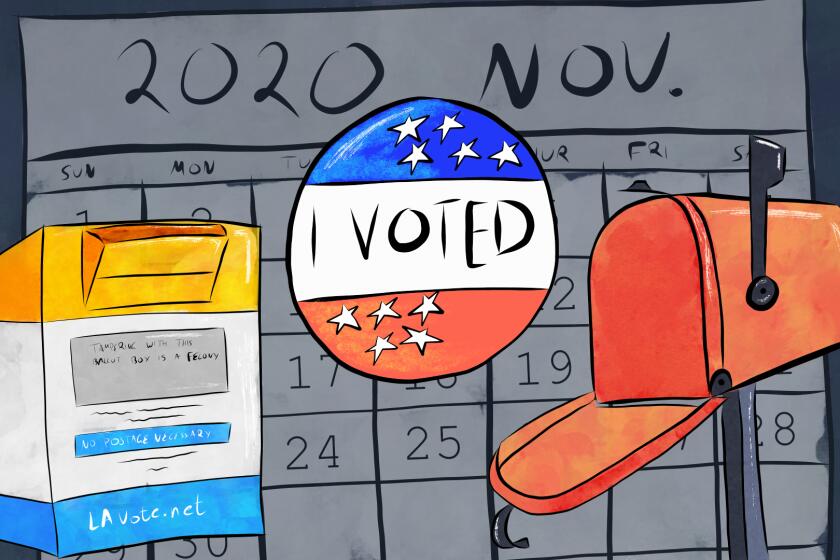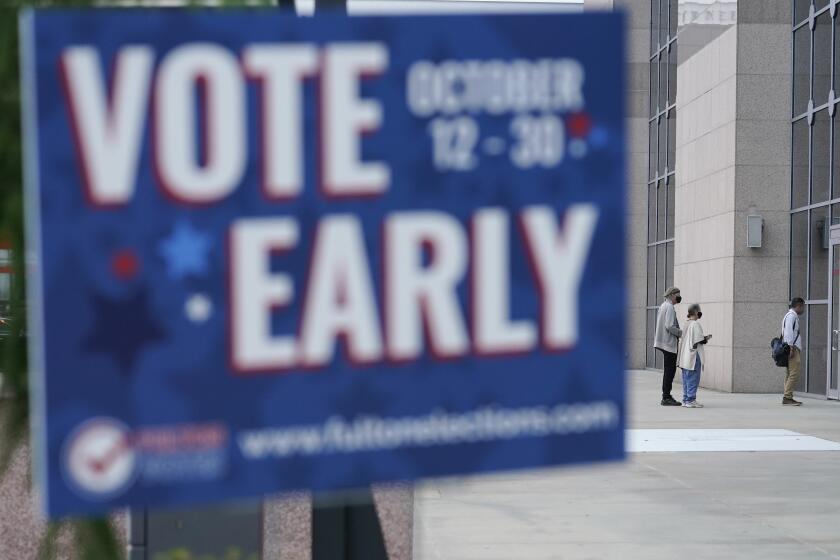‘I’m worried about everything’: Fearing their votes won’t count, Arizonans rush to cast ballots early
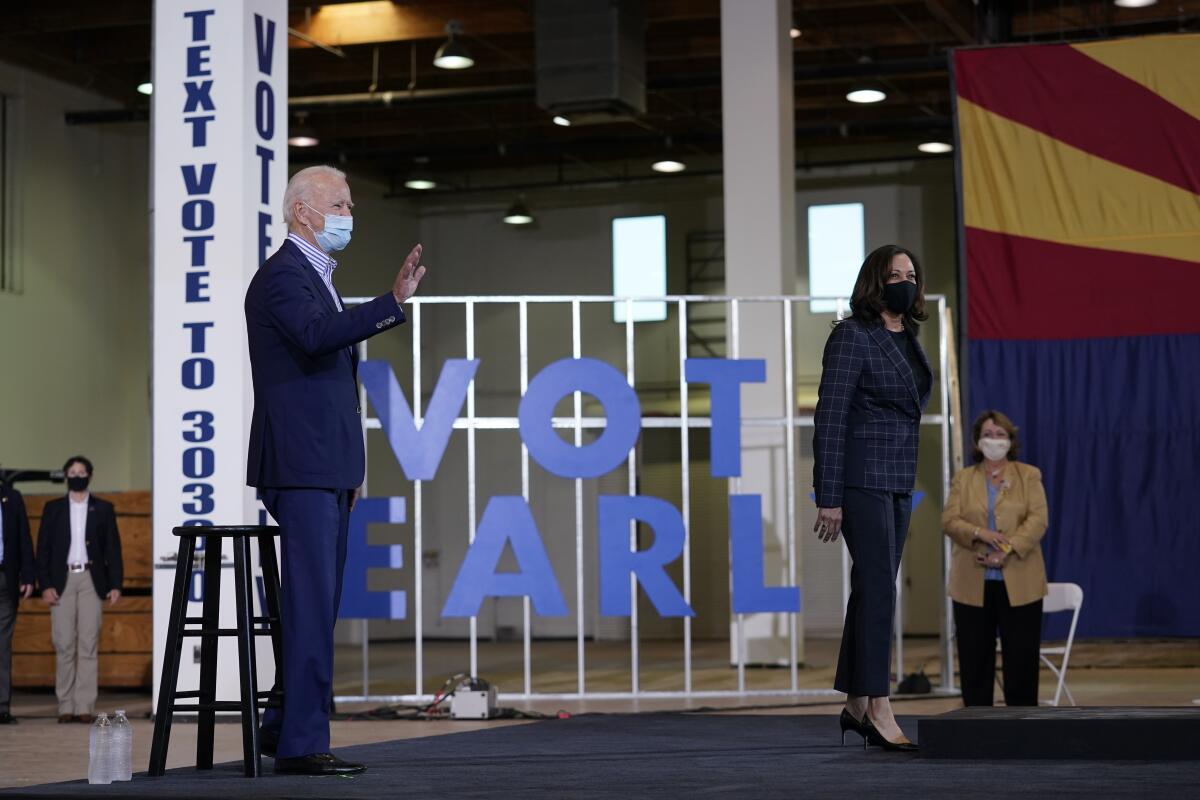
- Share via
PHOENIX — Emilio Alvarado typically takes his time with his ballot, weighing the candidates and propositions before mailing it in close to election day. Not this year, says the contractor and veteran who traditionally has voted for Republicans across the ballot.
He cast his ballot in person, at an early voting site in a Phoenix strip mall, on a broiling Friday more than three weeks before Nov. 3.
“I want my vote to count,” the 47-year-old said after casting a ballot for Democrat Joe Biden. “This election is something different. I’m worried about everything.”
Alvarado isn’t alone. Turnout in the 2020 presidential contest is on course to smash records.
Nearly 10 million Americans had already cast ballots as of Monday night, through mail ballots or at in-person voting sites, according to the U.S. Elections Project’s nonpartisan tally of early voting. By Oct. 16, 2016, about the same number of days before the election, state election officials across the nation reported 1.4 million people had voted early.
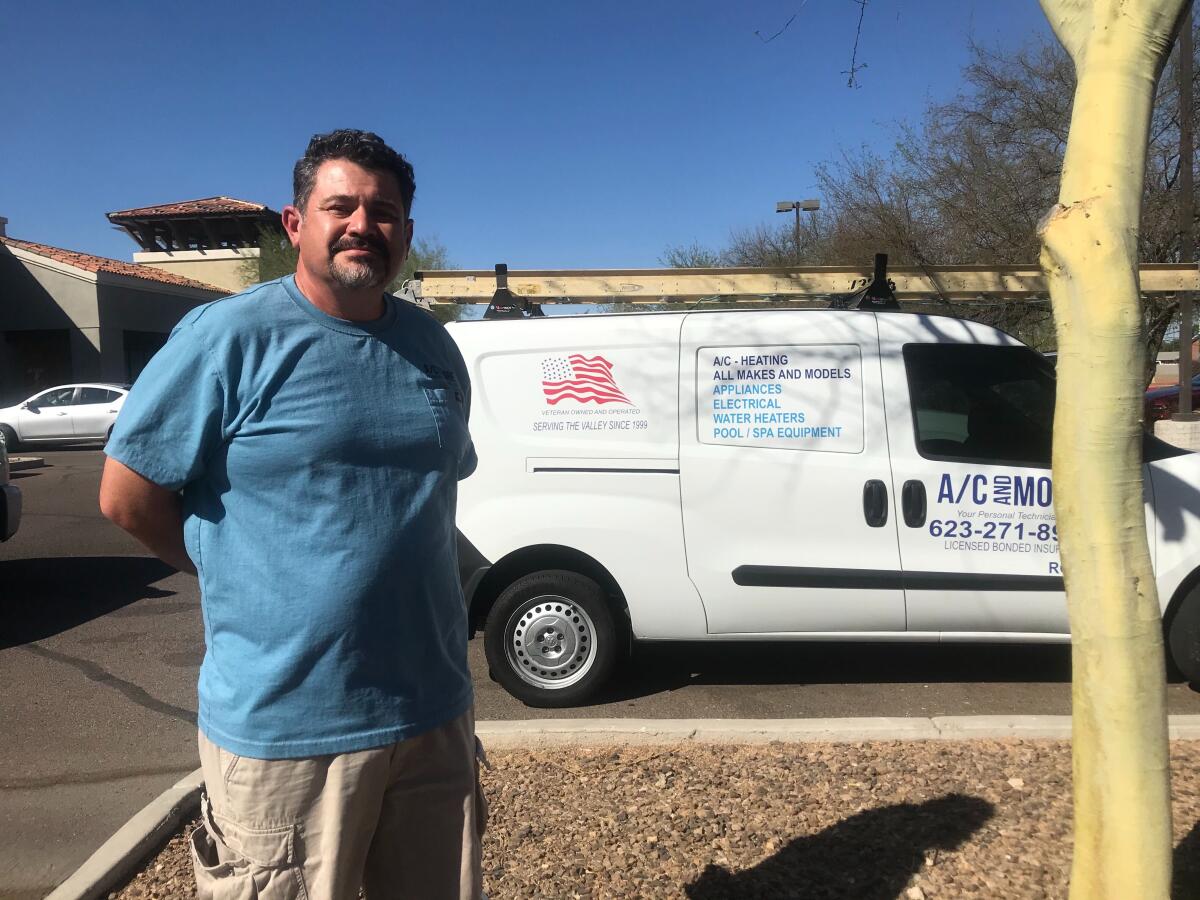
In Arizona, a crucial battleground in the presidential election, in-person early voting began last week, and interviews with Republicans, Democrats and independents showing up to cast ballots revealed a common motivation: fear.
Fear that their votes will get lost in the mail.
Fear that partisans will destroy their ballots.
Fear that their ballots will arrive too late at election offices to be counted.
Fear that elected officials will stop the count.
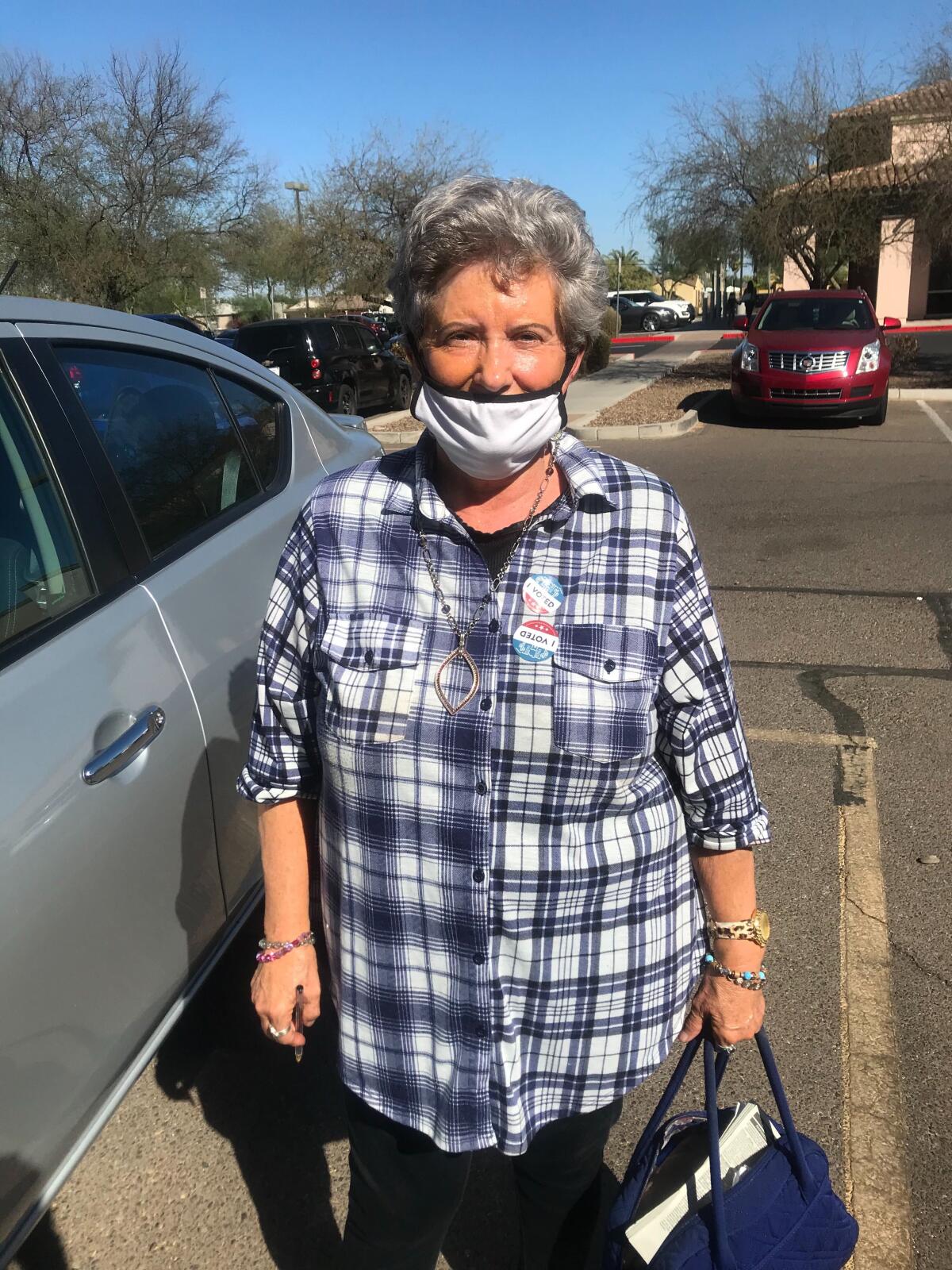
“I want to make sure that my ballot didn’t get torn up, that it didn’t get thrown away, and that there wasn’t anything going on at the polls that shouldn’t be going on there,” said Linda Cottrell, a 70-year-old retired underwriter who voted for Trump. “We’re worried about all of it, especially when it gets closer to the election.”
Voting experts say the remarkable turnout weeks before Nov. 3 can be attributed to two causes: more access to early voting, as well as greater enthusiasm among voters to cast their ballots early.
“It’s very clear there’s more people voting early. So what does that mean? There are two possible scenarios,” said Michael McDonald, a political science professor at the University of Florida who closely tracks early-voting trends and runs the Elections Project. “No. 1 is what we are observing is a change in when people are voting — people who would have voted anyway are voting earlier. The other possibility is a high turnout election.
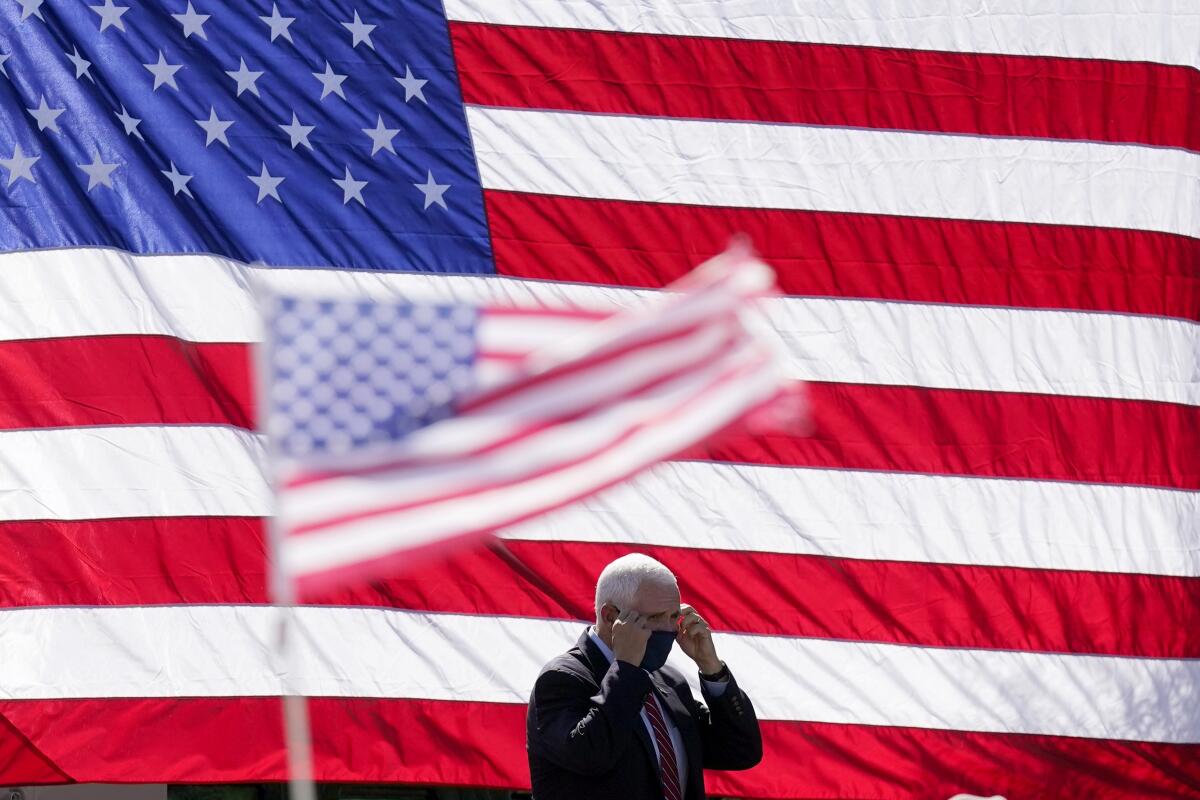
“I think probably both of them are correct to a certain degree,” McDonald said, adding that he sees strong indications of a record turnout. “We’ll find out as we get closer to election day.”
Voting rules vary by state, but opportunities for early voting have grown in recent decades. Only six states do not offer some ability to cast votes in person before election day, according to the National Conference of State Legislatures. As states have expanded early voting, voters have taken advantage.
In Georgia on Monday, the first day of in-person voting in that state, thousands waited in lines as long as six hours to cast ballots. Texas and Kentucky begin in-person early voting Tuesday, followed by many other states this week.
In Arizona last Wednesday, the first day of early voting, nearly 3,000 people cast ballots in person at seven sites in Maricopa County, according to the county recorder’s office. Four years prior, fewer than 900 people cast votes on the first day.
In California, more than 270,000 mail ballots have been returned as of Sunday, according to Political Data, a firm that tracks voting. In 2016 at this point, 13,000 ballots had been returned.
Several factors are at play. Coronavirus has made voters wary of standing in long lines on election day. Fears about mail delays and cutbacks at the U.S. Postal Service have prompted many to send ballots well ahead of time. And Republicans across the country, including the Trump campaign, have filed lawsuits in an effort to restrict ballot access or prevent expansions. Republicans say they are aiming to fight the potential for fraud; Democrats argue the GOP is trying to disenfranchise voters.
President Trump has attacked mail-in voting while also urging his supporters to take advantage of it. On Wednesday, he tweeted that early voting was starting in Arizona. “Cast your vote early in person, or request your vote-by-mail ballot right now. We want all eligible voters to vote, and have it counted!” Trump wrote. Two days later, he tweeted links to stories about ballot mailing errors or fraud allegations in other states. “A Rigged Election!!!” he wrote.
The chance to cast ballots on the first day of in-person early voting in Georgia has thousands of people waiting for hours outside polling places.
Experts say there is no evidence of widespread fraud and that, in fact, voter fraud is rare; critics accuse the president of trying to discredit the results of an election in which polls show him behind Biden.
Former Vice President Biden emphasized early voting on a swing through Arizona and Nevada last week, and said Trump’s efforts to undermine faith in the voting process would be undercut by an overwhelming victory.
“He’s trying to scare us. He tried to continue to convince everybody there’s ways they can play with the vote and undermine the vote,” Biden told Latino leaders in Las Vegas on Friday. “They can’t. If we show up, we win. And look what’s happening in early voting all across America — long lines, long lines. We can’t just win — we have to win overwhelmingly, so he can’t be in a position where he can put the phony challenges that he’s talking about.”
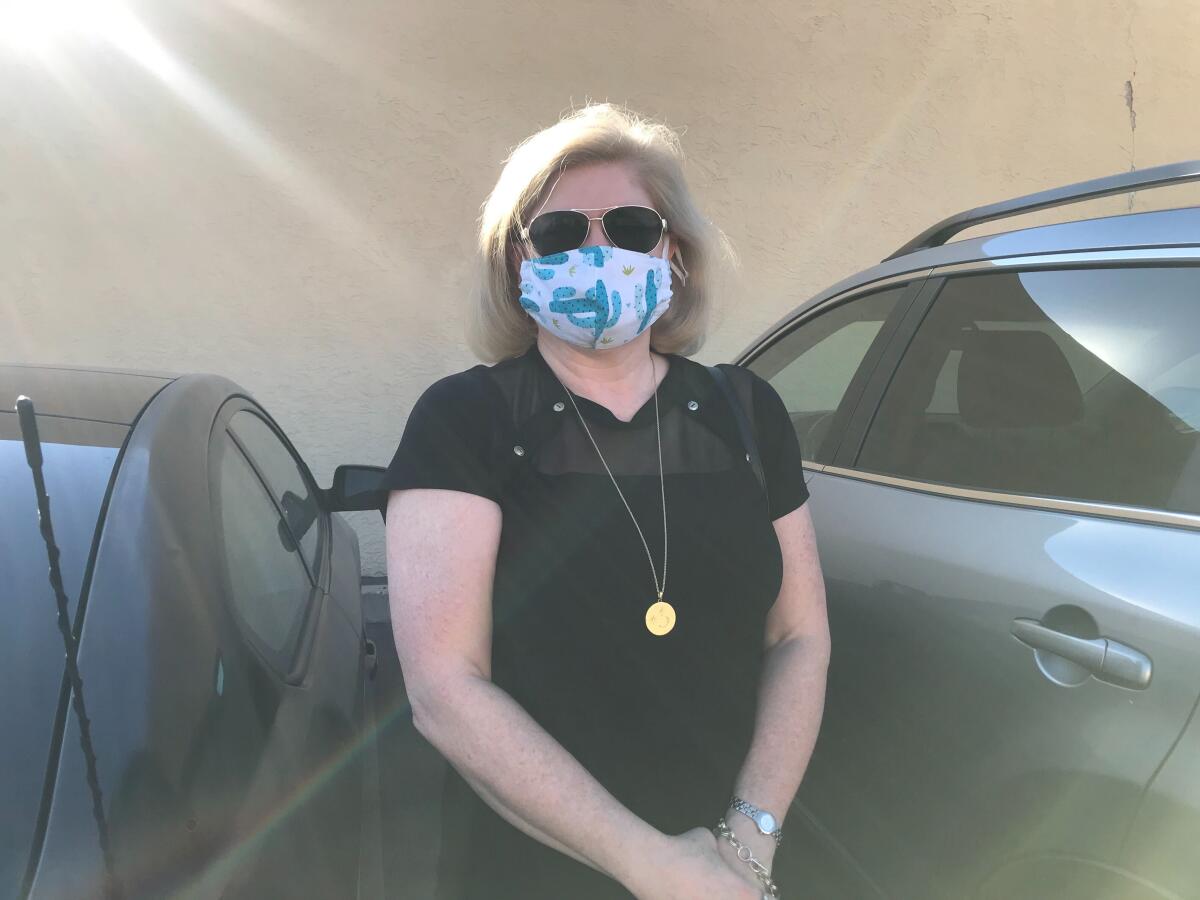
It’s a message that resonated with Ramona Dameron. The 56-year-old Realtor was voting early in person for the first time on Friday, saying she recalled how close the midterms elections were and how some results were not known for days. She fears that if the race is close in Arizona — as polls show it is — that the state’s GOP leaders will intervene at Trump’s behest.
“I’m afraid this time they’re going to try to stop the count,” she said, wearing a mask decorated with cactuses before casting her ballot for Biden in Scottsdale, Ariz. “So I decided I’m going to vote early.”
Some voters said they decided to turn out weeks ahead because of the amount of attention early voting was receiving this year.
“I didn’t even know early voting was a big deal, until it got marketed so much this particular election cycle,” said James Haycraft, 35. He said he was going to be out of town on election day and didn’t want to mail his ballot. “I’m concerned when I mail any letter that it won’t arrive where I want it to be, so this way, you know you’re done.”
The salesman and registered Republican cast his ballot in Scottsdale for Trump, saying he worries that Democrats’ agenda is too far to the left and that he approves of Trump’s support for law enforcement, troop pullbacks and tax cuts.
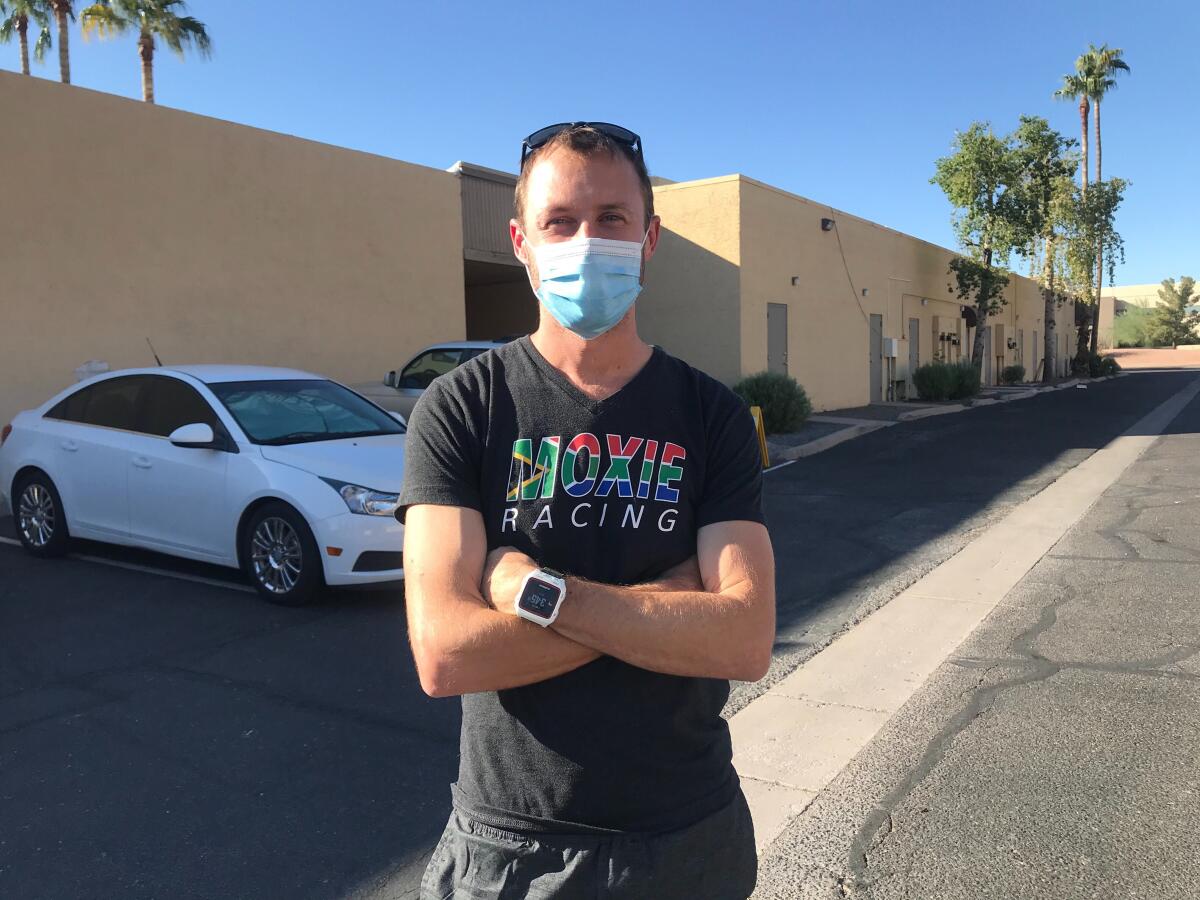
“There are certain things about him that are off-putting, but his policies I like,” Haycraft said.
The states release data on who is voting early in different ways, so it’s impossible to know precisely how many Democrats or Republicans have already voted. But Democrats have returned more than twice as many mail ballots as Republicans have in states that release this data, according to McDonald’s Elections Project. (Democrats are also more likely to request mail ballots and have returned them at a higher proportion than Republicans.) Media reports have also shown long lines at early-voting centers in Democratic hubs.
Interviews with voters at polling stations here found many motivated to vote early to deny Trump a second term.
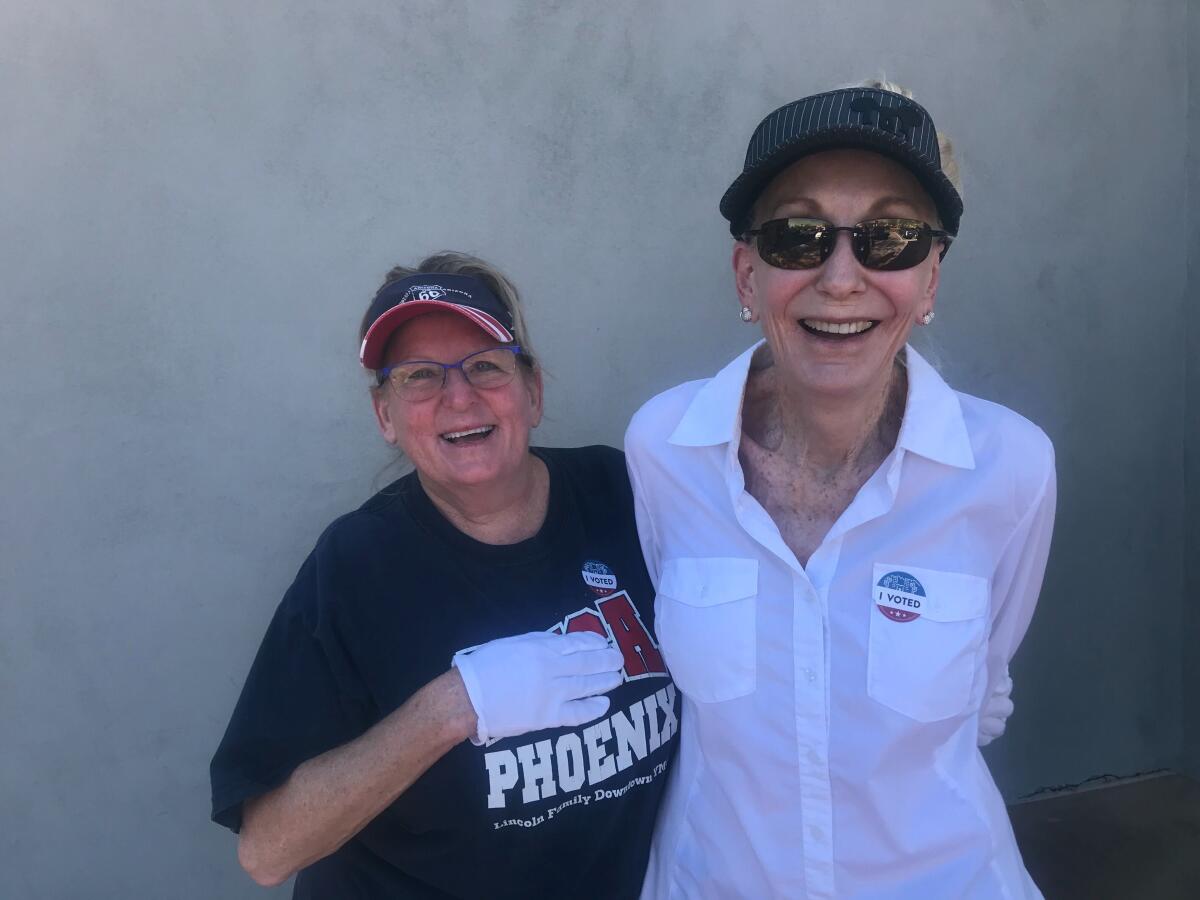
Retirees Donnette Hermes and Susan Stewart said they feared for the future if Trump were to win.
Hermes, 62, said she believed Trump’s reelection would mean “the destruction of the United States of America as we know it today.”
As the pair waited for their husbands to finish voting in a south Phoenix strip mall, they said the election was the most important in their lifetimes.
“I’m worried about what’s happened to our country in the last four years. Seeing people against other people that I have never seen before, the hate,” said Stewart, a 72-year-old retired nurse. “I just wanted to beat the rush, and I wanted to vote in person so I knew it would be counted.”
More to Read
Get the L.A. Times Politics newsletter
Deeply reported insights into legislation, politics and policy from Sacramento, Washington and beyond. In your inbox twice per week.
You may occasionally receive promotional content from the Los Angeles Times.

